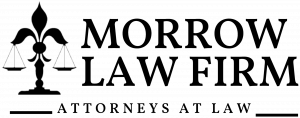Use of Surveillance in Injury Claims on the Rise, Say Louisiana Attorneys
In many cases, investigators are hired early, often before any benefits are paid, in an attempt to gather footage that can be used to question the validity or severity of an injury”
OPELOUSAS, LA, UNITED STATES, July 22, 2025 /EINPresswire.com/ -- Surveillance by insurance companies in injury cases is becoming an increasingly common practice, raising concerns among injured workers and their legal representatives. The use of private investigators, social media monitoring, and video evidence has quietly become a standard tactic in contested claims—especially those involving workplace injuries.— William P. Morrow
Attorneys at Morrow Law Firm in Opelousas, Louisiana, have observed a significant uptick in the use of surveillance footage being introduced during litigation and hearings involving workers' compensation and personal injury claims. The firm is led by William P. Morrow, John Michael Morrow, Jr., and Stephen M. Morrow, who handle a wide range of injury-related legal matters throughout the state.
According to William P. Morrow, the increased reliance on surveillance reflects a broader shift in how insurers approach injury claims.
"Surveillance has become a routine part of defending against injury claims," said Morrow. "In many cases, investigators are hired early, often before any benefits are paid, in an attempt to gather footage that can be used to question the validity or severity of an injury."
This practice is not limited to high-profile or high-value cases. Even in standard workplace injury claims, injured employees may find themselves unknowingly followed, filmed, or scrutinized online. Surveillance tactics often include covert video recording outside a person’s home, monitoring social media accounts, and documenting seemingly ordinary activities such as carrying groceries or mowing the lawn.
While the intent, according to insurers, is to detect fraud, legal professionals caution that footage can often be taken out of context. A short video clip may not accurately represent a person’s day-to-day physical limitations or ongoing medical struggles. This has led to contentious legal arguments over the admissibility and interpretation of such footage.
“There is a growing misconception that a single moment of physical activity invalidates a worker’s entire injury claim,” Morrow said. “In reality, people dealing with chronic pain or recovering from surgery may still have good days and bad days. Surveillance rarely captures the full picture.”
Louisiana law does not prohibit insurance companies from conducting surveillance in injury cases. However, legal precedent requires that such evidence be disclosed to the opposing party, typically during the discovery process. Failing to disclose this material may lead to objections in court or even exclusion of the footage.
Attorneys handling injury cases now regularly advise clients to assume that they may be under observation at any time. This includes both physical surveillance and online activity. Posts on social media—particularly photos or videos—can be taken out of context and used as evidence to dispute medical reports or testimony.
“Social media has become one of the first places insurers look,” said Morrow. “Even something as innocent as a family photo at a birthday party can be misinterpreted.”
Legal professionals also report that the use of surveillance can have a chilling effect on claimants, who may become overly cautious or fearful about leaving their homes or participating in physical therapy. In some cases, clients have withdrawn claims entirely after learning they were being watched.
Morrow Law Firm continues to track these trends closely, especially as digital surveillance tools become more advanced. GPS tracking, drone footage, and data harvested from smartphones are increasingly being discussed in courtrooms across the country. While Louisiana courts have not yet set specific guidelines for these newer technologies, privacy advocates and attorneys anticipate future legal battles over their use.
In the meantime, attorneys urge all parties involved in injury litigation to adhere to transparency and fairness in the handling of surveillance material.
“Surveillance is legal,” Morrow concluded, “but how it is presented, interpreted, and weighed must be done responsibly. Courts exist to consider all the facts—not just a few seconds of video.”
The attorneys at Morrow Law Firm remain focused on helping clients navigate the evolving legal landscape around workplace injuries and insurance defense tactics. As surveillance practices expand, legal professionals across Louisiana are calling for greater awareness and accountability in how such tools are used.
Morgan Thomas
Rhino Digital, LLC
+1 504-875-5036
email us here
Visit us on social media:
Facebook
Legal Disclaimer:
EIN Presswire provides this news content "as is" without warranty of any kind. We do not accept any responsibility or liability for the accuracy, content, images, videos, licenses, completeness, legality, or reliability of the information contained in this article. If you have any complaints or copyright issues related to this article, kindly contact the author above.

